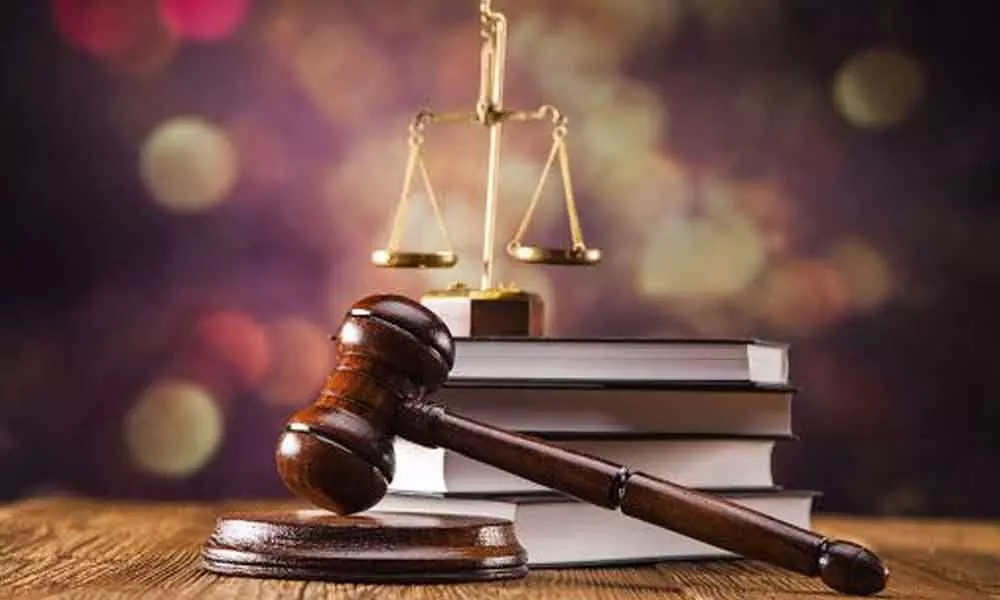Keep the doors of justice open to public

The virtual courts are really granting justice to the needy. Is our legal system so adequate to adopt the concept of virtual courts?
The virtual courts are really granting justice to the needy. Is our legal system so adequate to adopt the concept of virtual courts?
Even though the open court system is unable to cope with the huge backlog of pending matters, how can the virtual courts suddenly and magically solve the ever-present problem?
Currently, the virtual courts are not accessible to advocates who are practising in the district and subordinate courts with their limited resources and inadequate means. About 50 per cent of advocates are technically challenged. They have to be aware of using this technology to upgrade themselves. It is very difficult for them to immediately switch over to this new system of virtual court.
We are still in the process of technological advancement. Even in a city like Hyderabad, links to virtual hearings are often disrupted. In the entire State of Telangana, only a handful of advocates have well-equipped offices and big residential houses with another office. Many are still struggling to get a table in the compound of the district courts or city civil courts complex. Some advocates do not even have computers or laptops.
However, virtual courts are not mutually incompatible with the open court system. People have not been taken into confidence. The courts are working for litigants. For litigants, who mostly come from rural places, it is very difficult to understand that their case is disposed of without their advocate going to court.
Even though virtual courts may be comfortable for some advocates, the clients are not still ready. The seekers of justice have been totally ignored in this entire process.
Due to the spike in Covid-19 cases, the Telangana High Court on June 13 decided to defer its earlier order to start the functioning of the district judiciary from June 15 across the State except for the units of Hyderabad city civil court, CBI court and RR district court, wherein the lockdown was extended till June 28.
The present virtual court system does not inspire confidence in the people of the State whose cases are pending for many years. For the Supreme Court of India, the draft rules prepared by senior advocate Shyam Divan might be implemented.
High Courts may adopt the same as per their requirements, but for the lower courts, it takes a minimum of one to two years to make it workable. Our fine words, fair logic and enthusiasm for virtual courts do not invoke the familiar faith in the present system, as litigants have yet to understand it fully.
Senior counsel of the Supreme Court Rakesh Dwivedi says closing courts for long is a self-destructive Idea. He expressed that courts were sentinels of fundamental rights. There are backlogs. Vital interests of the people are involved, and the cases are in quarantine. Video conferencing is like putting the court in ICU on oxygen, says Rakesh Dwivedi in his letter to CJI.
The closure of courts in normal functioning may not be in the national interest and at a time when the country is fighting with the Covid-19 pandemic, courts must remain awake to the maximum extent possible.
Recently, the Supreme Court Bench of Justice L Nageshwar Rao and Justice S Ravindra Bhat directed the High Courts of UP, Rajasthan, MP, Patna, Bombay and Orissa to file affidavits submitting their plan of action in dealing with the long-pending criminal appeals.
The Bench expressed deep concern referring to statistics in the National Judicial Data Grid, the bench noted that the total number of 14,484 criminal appeals in such High Courts which have been pending for the last 30 years or more. Criminal appeals which have been pending for over twenty years- and up-to 30 years are 33,045. Criminal appeals which have been pending for above 10 years, up to 20 years are 2,35,914.
The Bench opined that these facts pose a challenge to the judicial system, as the right to a speedy trial would also include the right to speedy disposal of appeals of those convicted. If such appeals are not taken up for hearing within a reasonable time, the right of appeal itself would be illusory, inasmuch as incarcerated convicts would have undergone a major part- if not the whole of the period of their sentence.
Virtual courts can be more exploited by the governments, corporates, legal tycoons and wealthy law firms than ordinary advocates. Moreover, if the Supreme Court wishes to start virtual courts in India on a permanent basis, it ought to have begun by extending technical training to the lower courts i.e., district courts and Taluka courts at the bottom. The confidence of the people needs to be earned and gained from the grass-root level. If they feel satisfied, for the upper level it would come effortlessly.














